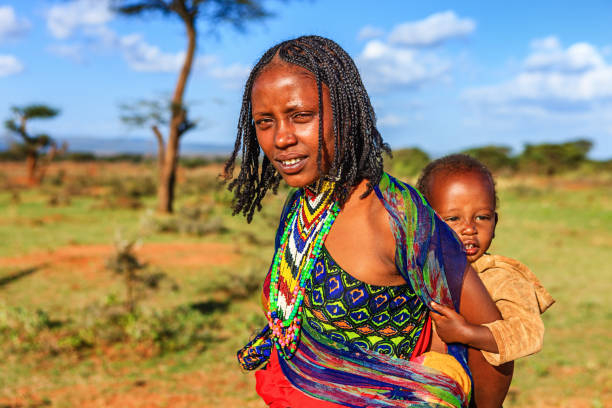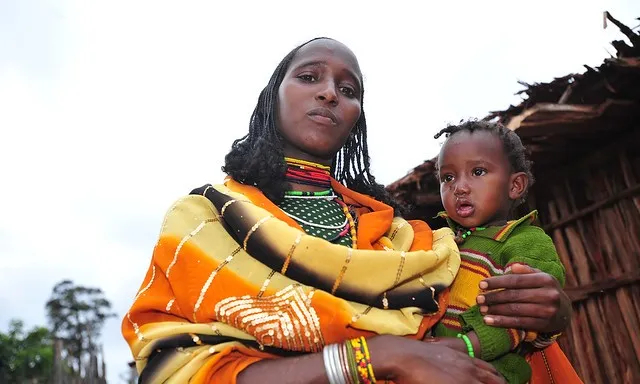Child birth in different Kenyan traditions
Childbirth is regarded as a blessing by all tribes, and newborns are greeted with song, dance, and appropriate rituals such as child naming. People would traditionally wait anxiously outside during a birth among the Kikuyu. A baby girl was welcomed with four ululations, while a baby boy was welcomed with five. While this custom is no longer practical because babies are born in hospitals, it is still held dear by elder women such as grandmothers who fulfill that requirement the first time they meet the baby by ululating appropriately.
Western Kenyan tribes such as the Luo and Luhya believe in shaving a baby's hair after a few days of birth—always a mother-in-domain—to law's ward off bad omens. Most traditional tribes would frown on today's trend of using ultrasounds to determine the sex of a baby before birth, because it was considered impolite to discuss or speculate about an unborn baby for fear of 'jinxing it.'
Child naming is systematic among the Kikuyu and has stood the test of time. The first son is always named after his paternal grandfather, and the first daughter is always named after her paternal grandfather. The third and fourth born children, and so on, are named after maternal grandparents. For example, among the Luo, a child is named after the time of day they were born or after whatever was happening at the time, such as a storm or famine. Atieno or Otieno refers to a child born at night, whereas Akoth or Okoth refers to a child born during the rainy season. Masai children are named after famous people or relatives, never after living people.









